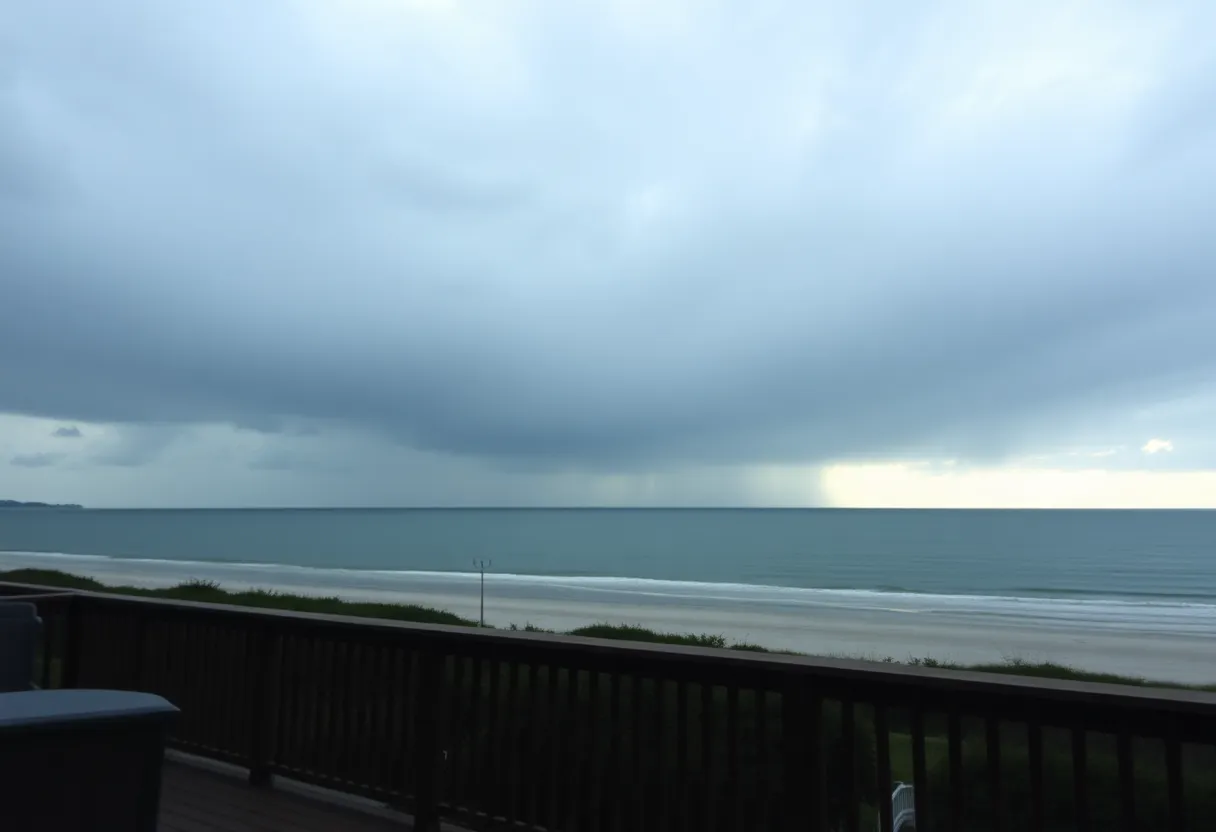News Summary
Two male melon-headed whales were recently discovered stranded on the coast of Tybee Island, marking the first documented strandings of this species in Georgia. The incident prompted an investigation by marine biologists and wildlife officials to uncover the cause of the strandings, which raised concerns about the conservation of these protected creatures. The event has sparked interest in marine biology and conservation, reminding communities of the mysteries that lie within our oceans.
Melon-Headed Whales Make Rare Appearance on Georgia Coast
In a surprising turn of events, the coastal city of Tybee Island has found itself at the center of marine biology intrigue! Just recently, two male melon-headed whales were discovered stranded along the southeastern coastline of the United States, marking the first documented strandings of these unique creatures in Georgia.
Unexpected Discoveries on the Shore
On December 26, 2024, the city of Tybee’s Department of Public Works stumbled upon one of the whales on the North Shore of Tybee Island. This juvenile male was a sight to behold, but not in the circumstances one would hope for. The discovery set off a flurry of activity among marine biologists and local wildlife officials who were eager to get to the bottom of this mysterious event.
Recognizing the significance of this find, the Tybee Marine Science Center quickly issued a press release announcing the discovery. It turned out that this wasn’t just an isolated incident, as another male melon-headed whale was found 50 miles away. This indicated a possible pattern that had biologists scratching their heads with questions. What could have led to this?
The Investigation Begins
As part of a collaborative effort, members of the Marine Mammal Stranding Network sprang into action. The network includes biologists from the Georgia Department of Natural Resources (GaDNR), the Tybee Marine Science Center, and Savannah State University (SSU). Together, they conducted an important necropsy on the whale’s body to uncover the cause of death.
Preliminary findings indicated that there were no signs of human interference, such as being struck by a boat propeller, which could often be the case in such strandings. However, the investigation didn’t stop there. Tissue samples from the whale were taken for further analysis to check for any signs of illness that could explain why this whale washed ashore.
Once the necropsy was complete, the animal was buried, although its skull was retained for further research and educational purposes. This crucial step ensures that vital information about these animals can continue to be studied and understood for years to come.
A First for Georgia
Wildlife biologist Trip Kolmeyer from the GaDNR expressed the remarkable nature of these strandings as they are the first documented occurrences of melon-headed whales along the Georgia coast. Melon-headed whales, intriguing little creatures in their own right, are closely related to pygmy killer whales and false killer whales. They are typically found in warmer, tropical waters and are known for their social nature, often swimming in groups that can number in the hundreds or even thousands.
These friendly mammals’ appearance on the coast has raised many eyebrows and questions among marine enthusiasts. Why are they here now? Are environmental changes causing shifts in marine life movement?
Conservation Concerns
It’s important to remember that melon-headed whales are a protected species under the Marine Mammal Protection Act. This law aims to ensure their survival and protect their habitats. With limited information available on their habits and health, every stranding incident serves as a valuable opportunity to learn more about these creatures.
As communities embrace this extraordinary moment, it’s a reminder that our oceans are filled with mysteries waiting to be uncovered. The events on Tybee Island have sparked interest in marine conservation and continue to fuel curiosity about these enchanting marine mammals.
Together, with ongoing research and awareness, we might just find out more about the fascinating world of melon-headed whales, and understand why they made such a rare visit to our shores. Stay tuned, because in the world of marine life, every stranding holds a story waiting to be told!
Deeper Dive: News & Info About This Topic
HERE Resources
Additional Resources
- Savannah Now: Two Melon-Headed Whales Stranded on Georgia Coast
- WSAV: Melon-Headed Whales Strand on Tybee and Sea Islands
- WSAV: Natasha Young Author Page
- Wikipedia: Melon-headed Whale
- Encyclopedia Britannica: Melon-headed Whale

Author: STAFF HERE HILTON HEAD
The HILTON HEAD STAFF WRITER represents the experienced team at HEREHiltonHead.com, your go-to source for actionable local news and information in Hilton Head Island, Beaufort County, and beyond. Specializing in "news you can use," we cover essential topics like product reviews for personal and business needs, local business directories, politics, real estate trends, neighborhood insights, and state news affecting the area—with deep expertise drawn from years of dedicated reporting and strong community input, including local press releases and business updates. We deliver top reporting on high-value events such as the RBC Heritage golf tournament, Hilton Head Island Wine & Food Festival, and the Gullah Celebration. Our coverage extends to key organizations like the Hilton Head Island-Bluffton Chamber of Commerce and Community Foundation of the Lowcountry, plus leading businesses in tourism and hospitality that power the local economy such as Sea Pines Resort and Sonesta Resort Hilton Head Island. As part of the broader HERE network, including HEREAiken.com, HEREBeaufort.com, HEREChapin.com, HERECharleston.com, HEREClinton.com, HEREColumbia.com, HEREGeorgetown.com, HEREGreenwood.com, HEREGreenville.com, HEREHiltonHead.com, HEREIrmo.com, HEREMyrtleBeach.com, HERENewberry.com, HERERockHill.com, and HERESpartanburg.com, we provide comprehensive, credible insights into South Carolina's dynamic landscape.





